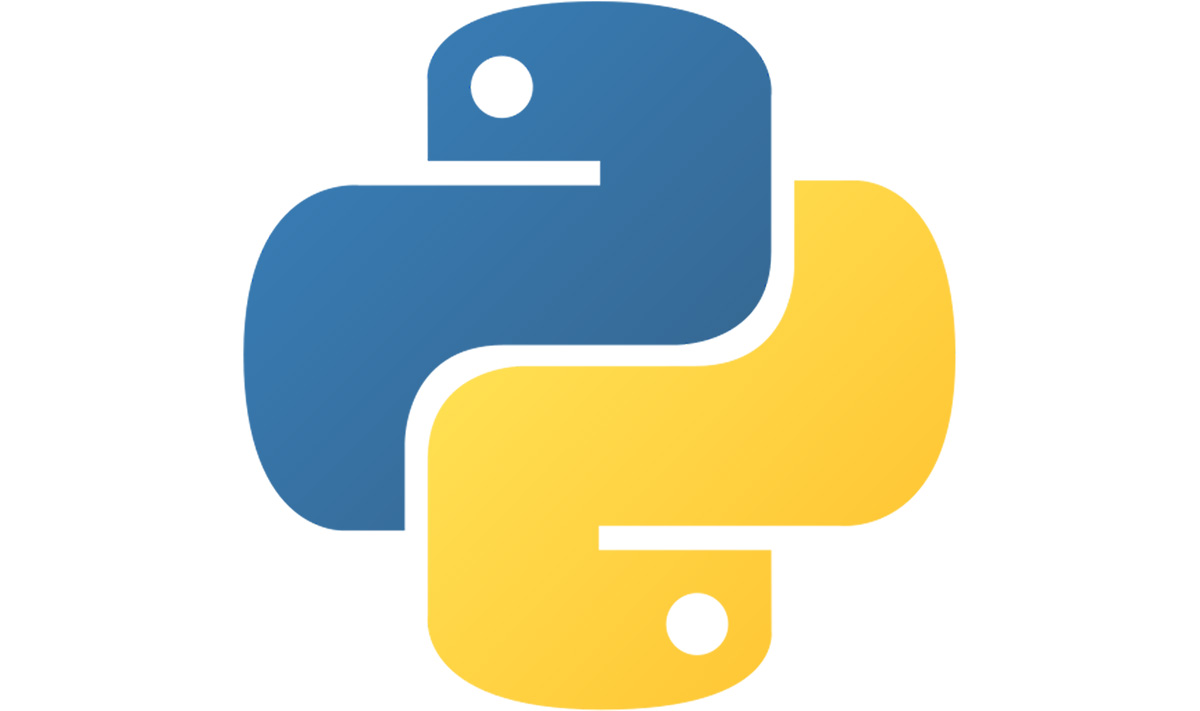Check if Python Object is Iterable
Learn multiple ways to check for iterability in Python, ensuring your code handles objects gracefully and avoids common errors.
Learn multiple ways to check for iterability in Python, ensuring your code handles objects gracefully and avoids common errors.
In Python, iterables are objects capable of returning their members one by one, enabling you to iterate through them using a for loop. This article presents three methods to determine if an object is iterable in Python.
In Python, an iterable is an object that can return its members one at a time, allowing you to loop through them using a for loop. To determine if an object is iterable, you can use the following methods:
1. Using the iter() function:
This is the most Pythonic and recommended way to check for iterability. The iter() function attempts to obtain an iterator from an object. If successful, it means the object is iterable; otherwise, it raises a TypeError.
def is_iterable(obj):
try:
iter(obj)
return True
except TypeError:
return FalseThis code snippet defines a function is_iterable() that takes an object as input. It tries to call the iter() function on the object. If it succeeds, the object is iterable, and the function returns True. If the iter() function raises a TypeError, it means the object is not iterable, and the function returns False.
2. Using the hasattr() function:
This method checks if an object has a specific attribute, in this case, '__iter__'. While this generally works, it's not considered the most reliable method, as some objects might have the attribute but not be truly iterable.
hasattr(my_object, '__iter__')This line of code checks if the object my_object has the attribute '__iter__'. If it does, it returns True; otherwise, it returns False.
3. Using the collections.abc module (Python 3.4+):
This module provides abstract base classes for containers, including iterables. You can use the isinstance() function with the appropriate abstract base class to check for specific iterable types.
from collections.abc import Iterable
isinstance(my_object, Iterable)This code first imports the Iterable class from the collections.abc module. Then, it uses the isinstance() function to check if my_object is an instance of the Iterable class. If it is, it means the object is iterable and returns True; otherwise, it returns False.
Remember that these methods only check if an object is iterable. They don't guarantee the behavior or order of iteration.
The Python code demonstrates three ways to check if an object is iterable: using the iter() function, the hasattr() function, and the isinstance() function with the Iterable class from the collections.abc module. It tests these methods on a list, a string, and a number, showing that lists and strings are iterable while numbers are not.
# Different types of objects
my_list = [1, 2, 3, 4]
my_string = "Hello"
my_number = 10
# 1. Using the iter() function
def is_iterable(obj):
try:
iter(obj)
return True
except TypeError:
return False
print(f"Is my_list iterable? {is_iterable(my_list)}") # Output: True
print(f"Is my_string iterable? {is_iterable(my_string)}") # Output: True
print(f"Is my_number iterable? {is_iterable(my_number)}") # Output: False
# 2. Using the hasattr() function
print(f"Is my_list iterable? {hasattr(my_list, '__iter__')}") # Output: True
print(f"Is my_string iterable? {hasattr(my_string, '__iter__')}") # Output: True
print(f"Is my_number iterable? {hasattr(my_number, '__iter__')}") # Output: False
# 3. Using the collections.abc module (Python 3.4+)
from collections.abc import Iterable
print(f"Is my_list iterable? {isinstance(my_list, Iterable)}") # Output: True
print(f"Is my_string iterable? {isinstance(my_string, Iterable)}") # Output: True
print(f"Is my_number iterable? {isinstance(my_number, Iterable)}") # Output: FalseThis code demonstrates all three methods of checking for iterability in Python. It defines three different objects: a list, a string, and a number. Then, it applies each method to determine if the object is iterable. The output of the code clearly shows which objects are iterable and which are not.
This example provides a practical understanding of how to identify iterable objects in Python, which is crucial for working with loops and other programming constructs that rely on iteration.
iter() on an iterable returns an iterator.__iter__() method, which should return an iterator object. The iterator object should have a __next__() method that returns the next value in the sequence and raises a StopIteration exception when there are no more items.for loops: Iterables can be used with other constructs like list comprehensions, generator expressions, and functions like map(), filter(), and zip().This article provides three methods to determine if an object is iterable in Python:
| Method | Description | Reliability | Python Version |
|---|---|---|---|
iter() function |
Attempts to obtain an iterator from the object. Returns True if successful, False otherwise. |
Most Pythonic and recommended. | All |
hasattr() function |
Checks for the presence of the '__iter__' attribute. |
Less reliable, as some objects might have the attribute but not be truly iterable. | All |
collections.abc module |
Uses the isinstance() function with abstract base classes like Iterable to check for specific iterable types. |
Reliable for checking against specific iterable types. | 3.4+ |
Key Takeaways:
iter() function is the most reliable and Pythonic way to check for iterability.hasattr() function is less reliable but can be used as a quick check.collections.abc module provides a more type-specific approach to checking for iterables.Understanding how to identify iterable objects is fundamental to Python programming. By using the iter() function, checking for the __iter__ attribute, or utilizing the collections.abc module, you can effectively determine if an object is iterable. This knowledge is essential for working with loops, comprehensions, and various built-in functions that rely on iteration. Remember that while these methods help identify iterables, they don't guarantee the iteration behavior or order. Python's emphasis on duck typing often allows you to use objects as iterables without explicit checks, as long as they support iteration. However, the methods discussed in this article are valuable when you need to explicitly validate an object's type or behavior, ensuring your code functions correctly and efficiently.
 How to check if an object is iterable in Python? - GeeksforGeeks | A Computer Science portal for geeks. It contains well written, well thought and well explained computer science and programming articles, quizzes and practice/competitive programming/company interview Questions.
How to check if an object is iterable in Python? - GeeksforGeeks | A Computer Science portal for geeks. It contains well written, well thought and well explained computer science and programming articles, quizzes and practice/competitive programming/company interview Questions. How to check if an object is iterable in Python - Python Engineer | Three methods to check iteration status of a variable in python.
How to check if an object is iterable in Python - Python Engineer | Three methods to check iteration status of a variable in python. A high-performance solution to the "are all elements of an iterable ... | This appears to be a relatively common problem to which there isn’t currently a de-facto solution. (At least as far as I know.) Part of the reason why I believe this at least a fairly frequently seen issue is evidenced by this Stack Overflow question, where there are a huge volume of answers. Feature or enhancement Proposal: def all_equal(iterable): return all(map(operator.eq, iterable[1:], iterable[:-1]) Consider the following requirement for a function or operation: A function which...
A high-performance solution to the "are all elements of an iterable ... | This appears to be a relatively common problem to which there isn’t currently a de-facto solution. (At least as far as I know.) Part of the reason why I believe this at least a fairly frequently seen issue is evidenced by this Stack Overflow question, where there are a huge volume of answers. Feature or enhancement Proposal: def all_equal(iterable): return all(map(operator.eq, iterable[1:], iterable[:-1]) Consider the following requirement for a function or operation: A function which... In Python, how do I determine if an object is iterable? | In Python, an object is considered iterable if it has an iter() method defined or if it has a getitem() method with defined indices (i.e., it can be indexed, like a list or a string).
In Python, how do I determine if an object is iterable? | In Python, an object is considered iterable if it has an iter() method defined or if it has a getitem() method with defined indices (i.e., it can be indexed, like a list or a string). How to check if an object is iterable in Python? | How to check if an object is iterable in Python - Iterable object is the object that can be iterated through all its elements using a loop or an iterable function. The lists, string, dictionary, tuples etc. are all known as iterable objects. There are different ways to check if an object is iterable or not in the Python language. Let’s see them
How to check if an object is iterable in Python? | How to check if an object is iterable in Python - Iterable object is the object that can be iterated through all its elements using a loop or an iterable function. The lists, string, dictionary, tuples etc. are all known as iterable objects. There are different ways to check if an object is iterable or not in the Python language. Let’s see them collections.abc — Abstract Base Classes for Containers — Python ... | Source code: Lib/_collections_abc.py This module provides abstract base classes that can be used to test whether a class provides a particular interface; for example, whether it is hashable or whet...
collections.abc — Abstract Base Classes for Containers — Python ... | Source code: Lib/_collections_abc.py This module provides abstract base classes that can be used to test whether a class provides a particular interface; for example, whether it is hashable or whet...